NY Phil Audition Challenge Week 0

Above, you see me on Pilatus, a peak in the Swiss Alps whose base is an easy train ride from the town of Lucerne. Since most major orchestras pass through Lucerne from time to time, Pilatus is a peak I’ve had the pleasure of hiking up many times. This one time, in 2003, we had perfectly clear skies and sunshine up top. Luckily, I took pictures, because for the last 12 years I’ve had nothing but clouds, rain or snow up there! I always hope for that incredible view during the climb, but the truth is that I never know what it’s going to look like up there. It’s out of my control.
As you may have guessed, what I’m getting at is that the climb, the journey, is what the hike is really about. On my way up, I pass through meadows, converse with Swiss cows, dash by streams, stroll through hushed forests, picnic on the rocks, and meet fellow hikers. I can see my goal way up there, getting closer, larger, more real as I approach. By now, that climb is a familiar one to me. I recognize the landmarks; I look forward to them, even as I know that year by year, they’ll appear slightly different to me. The stream surges one year, and another year it’s quiet. There’s snow on the approach, or bare rock. One year, the entire route was closed because of a big snow on the mountain. Out of my control.
I became obsessed with Mount Everest for a time, several years ago. I couldn’t read enough about the mountain, its first climbers, the dangers it posed and still poses to those who attempt it. Even with money and human ingenuity trained on the summit, in an age where you can pay for others to carry your equipment and even the air you breathe, that final push is yours alone. Some years, everything lines up just right and people from all over the world get to realize their dream of summiting Everest. Other years, the mountain turns everyone away. And of course, in some fateful climbing seasons, nature’s wrath claims life and limb.
Even on a day with perfect conditions, your time at Everest’s summit is necessarily limited. Those who breathe bottled oxygen (all but the most experienced climbers and, of course, the Sherpas) must descend before it runs out. Even those who can survive at that extreme altitude without supplemental oxygen must be mindful of the time, since weather conditions tend to deteriorate as the day wears on. Spend too long up top, and you may never get down.
On top of Pilatus, the situation is not nearly so dire. Even so, I always wish that I could spend just a few more minutes enjoying the fruits of my labor. The cable cars have their schedule, and I always have to catch an earlier one than I like, so that I can descend in time for the concert. I suppose my limited time up top makes me savor every moment that much more.
This week, I encourage you to do the same. You’ve worked hard, over a long period of time, to get here! Your playing, especially for these audition selections, may never have been better. And while your performance of these selections will undoubtedly decline after our final assignment is complete, your work will never be lost. You’ll be perfectly positioned to ascend once more, and the landmarks will be more familiar to you. You’ll know what it feels like to start out with an excerpt, to play it for an audience, to grapple with how to start it under pressure. All this knowledge and experience is yours now and forever. The more you work with that knowledge, of course, the easier it becomes to apply to all your playing. But the work you’ve done with me will never be lost.
Once you’ve made your final video, pour some Champagne, or at least some sparkling cider! You can’t control what happens after that, but you can certainly savor the moment, along with your fellow “hikers”.
It’s been an unforgettable experience serving as your guide for this Challenge, even if I have had to step away for a moment or two. After the Challenge ends this week, I’ll be very interested in your stories. Tell me what it’s like this week, “on the summit”! Or think of some interesting moments along the way. With your permission, I’d love to share some of these stories with all of our participants, as well as my other readers. It may just encourage someone else to challenge themselves the next time around.
I also have a dream of putting the Challenge material together in a format that could help you and anyone take auditions in the future. It would include my editions of the most common excerpts, just like the Schumann Scherzo part that you downloaded. It would also include my notes on preparation and execution. Video performances too. And a game plan, just like we did here with the Challenge. So if you have ideas as to what this e-book should look like, or what it should contain, now’s your chance to let me know! After all, you are the reason it will exist.
This final push is yours alone. Savor the moment!
Nathan
Week 0 Assignment
On the morning of Sunday, November 8, I’ll send an email containing the order in which I would like to hear your excerpts. I may not ask for every excerpt, and I may not ask for all of each excerpt. I will start with the Mozart concerto. You’ll have all of that day and the next day to make your audition video, using the same “honor system” one-take rules that we’ve been using over the last few weeks.

Scales: The Road
to Repertoire
Even if you’ve never played a scale before, violinist Nathan Cole of the Los Angeles Philharmonic will guide you through scale routines that meet you where you are, and build progressively alongside your playing.

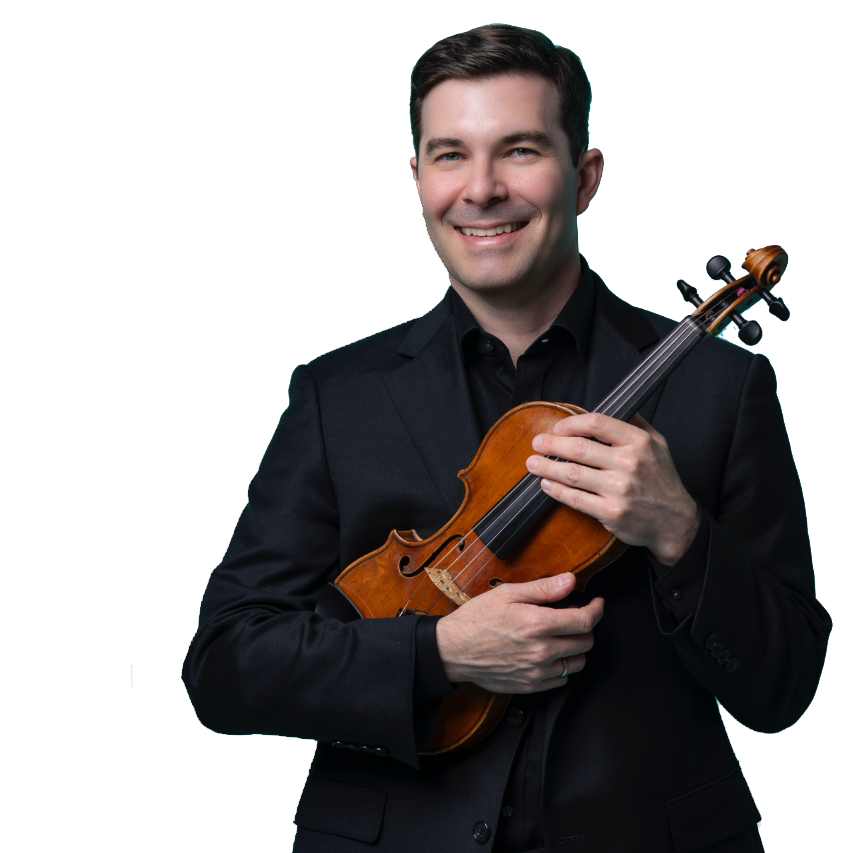

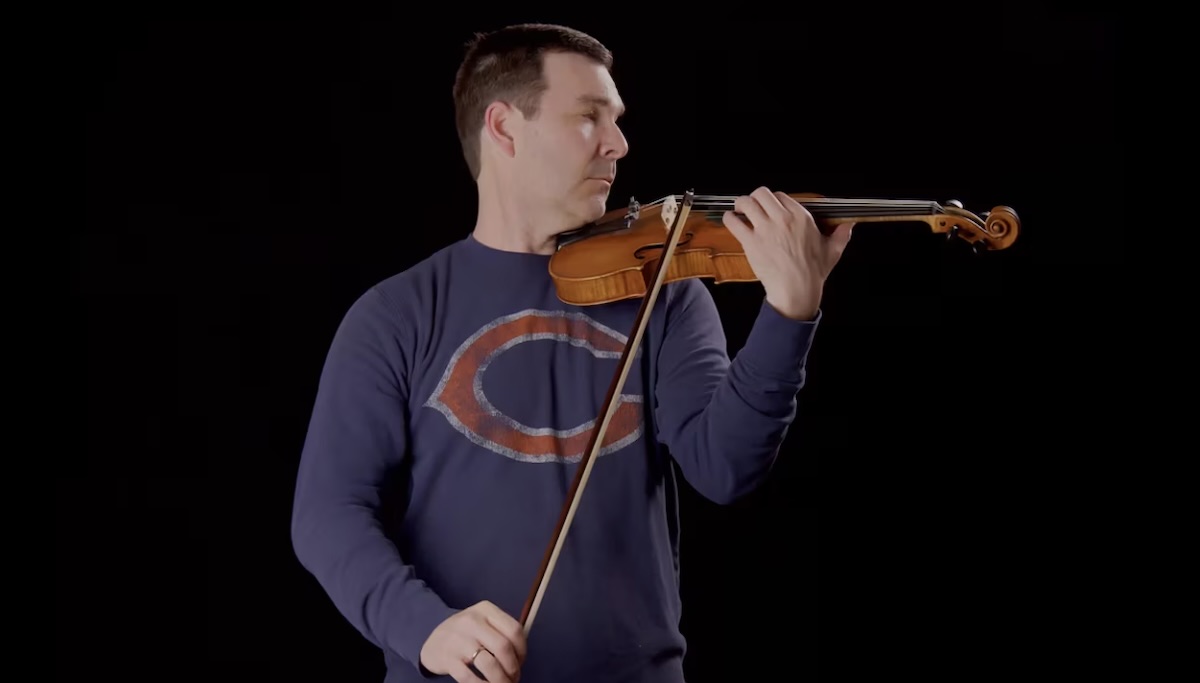
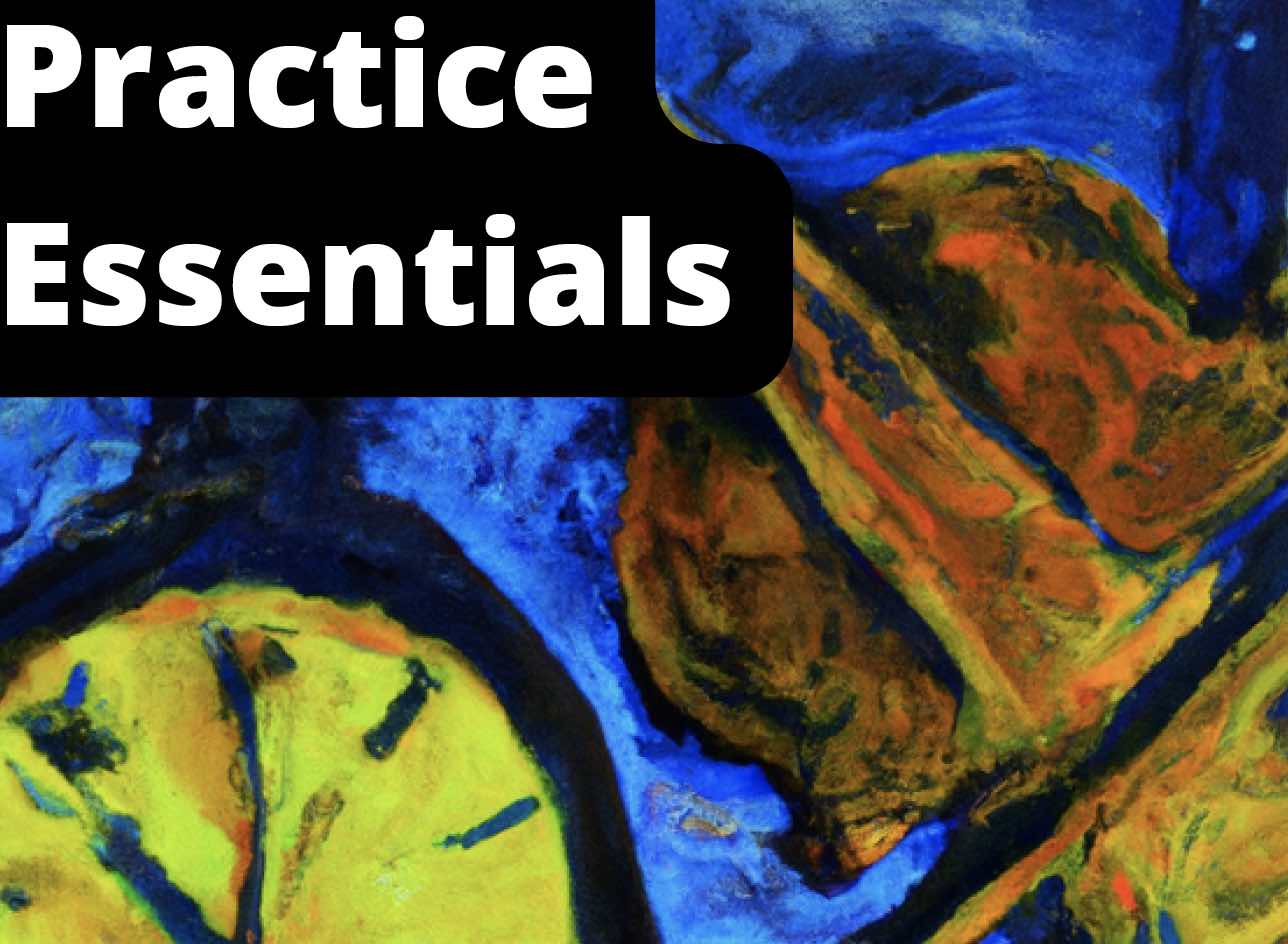

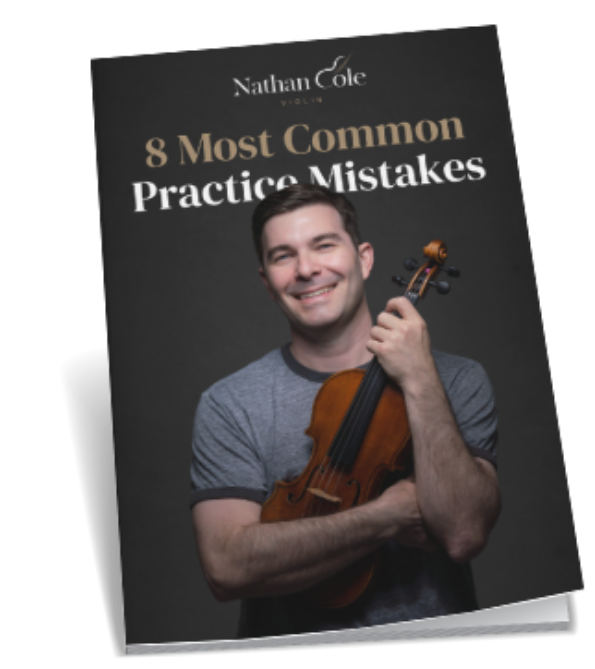
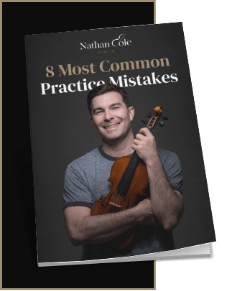
Comment section